You Deserve It:
Congratulations on navigating the challenges of entrepreneurship, especially during these unprecedented times. As resilient leaders, you've likely weathered the storm of the COVID-19 pandemic, adapting your businesses to thrive in the face of adversity. However, amidst the triumphs, many of you may be grappling with a silent adversary: post-viral anxiety.
Post-viral anxiety is a stealthy foe, often lingering long after the physical symptoms of illness have subsided. It can manifest as persistent worry, fear of the unknown, and an overwhelming sense of unease that threatens to derail your entrepreneurial journey. But fear not, for in this blog, we'll delve into the depths of post-viral anxiety, uncovering its hidden triggers, and unveil the empowering solution that integrative health offers to reclaim your mental well-being and propel you towards success. (Note: if you prefer podcasts over blogs, click here to tune in.)
Understanding Post-Viral Anxiety:
Picture this: you've battled through the fever, the cough, the fatigue of a viral illness like COVID-19. Physically, you've triumphed over the virus, but mentally, you find yourself trapped in a cycle of apprehension and uncertainty. This is the insidious nature of post-viral anxiety, a condition that affects not only your mental health but also your ability to function optimally in your entrepreneurial endeavors.
Post-viral anxiety can manifest in various forms:
1. Persistent Worry: You find yourself constantly fretting about the future of your business, the economic landscape, and the uncertainties that lie ahead.
2. Fear of Failure: Despite your past successes, you're plagued by self-doubt and a nagging fear of failure, hindering your decision-making and creative processes.
3. Physical Symptoms: Headaches, insomnia, gastrointestinal distress – your body may bear the physical manifestations of the stress and anxiety that accompany post-viral recovery.
4. Social Withdrawal: The isolation imposed by illness, compounded by lingering anxiety, may lead to withdrawal from social interactions, impacting both your personal and professional relationships.
The chaLLENGES of Post-Viral Anxiety:
As entrepreneurs, you're no strangers to adversity. However, the unique challenges posed by post-viral anxiety can be particularly debilitating, threatening to undermine your hard-earned successes and impede your journey towards your goals.
1. Productivity Plateaus: Despite your best efforts, you may find yourself struggling to maintain the same level of productivity and focus that once propelled your business forward.
2. Creative Blockages: The creative wellspring from which you draw inspiration may run dry in the face of anxiety, stifling innovation and hindering your ability to adapt to changing market dynamics.
3. Relationship Strain: The toll of post-viral anxiety isn't limited to your professional life – it can seep into your personal relationships, leading to strain and discord that further exacerbate your mental distress.
4. Health Impacts: The mind-body connection is undeniable, and the chronic stress associated with post-viral anxiety can take a toll on your physical health, compromising your overall well-being.
Unearthing the Root Causes:
To effectively combat post-viral anxiety, it's essential to dig deep and unearth the underlying root causes that fuel its insidious grip on your psyche. While the triggers may vary from individual to individual, some common culprits include:
1. Neurochemical Imbalance: The physiological impact of viral illness on the brain can disrupt neurotransmitter levels, contributing to mood disturbances and anxiety disorders.
2. Trauma Response: The experience of battling a serious illness like COVID-19 can evoke feelings of trauma, triggering a heightened stress response that persists long after the physical symptoms have resolved.
3. Psychosocial Factors: External stressors such as financial worries, social isolation, and the pressure to succeed in a competitive marketplace can exacerbate post-viral anxiety and impede recovery.
4. Inflammatory Pathways: Emerging research suggests a link between inflammation and mental health disorders, with chronic inflammation associated with both viral illness and anxiety-related conditions.
The Integrative Health Solution:
In the face of post-viral anxiety, conventional approaches often fall short, relying solely on pharmaceutical interventions or cognitive-behavioral therapy to manage symptoms. However, integrative health offers a holistic alternative that addresses the root causes of anxiety, empowering you to reclaim your mental well-being and thrive as a woman entrepreneur.
So, what exactly is integrative health, and how can it benefit you? At its core, integrative health combines the best of conventional medicine with evidence-based complementary therapies, embracing a whole-person approach that nurtures mind, body, and spirit.
Eliminating the Guesswork:
You might be wondering how to eliminate the guesswork. Introducing precision at-home functional lab testing to discover the underlying root causes marks a pivotal shift in personalized wellness within integrative health. Unlike traditional approaches that may generalize treatment, these tests delve into the intricate nuances of individual biochemistry, uncovering specific imbalances or deficiencies unique to each person. By embracing this innovative method, integrative health practitioners can tailor personalized wellness plans that precisely target the underlying causes of health concerns. Whether it's identifying nutrient deficiencies, hormonal imbalances, or toxic burdens, these tests empower individuals to take proactive steps towards optimizing their health and well-being. With the insights gained from these tests, individuals can make informed decisions about their health, paving the way for targeted interventions that address the root cause rather than just managing symptoms.
Wellbeing is an Equation:
Following the revelation of test results, the journey toward holistic well-being continues with a focus on the equation of removing toxicities and replacing deficiencies. Armed with a deeper understanding of their body's unique needs, individuals can embark on a journey of healing by eliminating environmental toxins, addressing nutrient deficiencies, and restoring balance to their biochemistry. Integrative health practitioners guide this process, leveraging evidence-based interventions to support detoxification pathways and replenish vital nutrients. Through targeted nutritional support, lifestyle modifications, and personalized supplementation, individuals can restore harmony within their body, fostering resilience to stress and promoting overall well-being. By addressing both the toxic burdens and nutritional deficiencies identified through precision testing, integrative health empowers individuals to take proactive control of their health, laying the foundation for a vibrant and fulfilling life.
Here's a deeper look at how integrative health can serve as your beacon of hope amidst the storm of post-viral anxiety:
1. Personalized Wellness Plans: Integrative health practitioners recognize that no two individuals are alike, tailoring wellness plans to address your bio-individual needs, preferences, and goals. Whether you prefer acupuncture, mindfulness, meditation, or nutritional counseling, integrative health offers a diverse toolkit of therapies to support your journey towards healing.
2. Mind-Body Integration: Unlike conventional medicine, which often compartmentalizes mental and physical health, integrative health recognizes the intimate connection between mind and body. Through practices such as yoga, Qigong, tai chi, hypnosis and breathwork, you'll learn to cultivate mindfulness and harness the power of your body's innate healing wisdom to combat anxiety and restore balance.
3. Nutritional Support: The gut-brain axis plays a pivotal role in mental health, and integrative health emphasizes the importance of nutrition in supporting optimal brain function. By fueling your body with nourishing foods rich in omega-3 fatty acids, antioxidants, and probiotics, you'll bolster your resilience to stress and promote emotional well-being from the inside out.
4. Stress Reduction Techniques: In today's fast-paced world, stress has become a ubiquitous presence, wreaking havoc on our mental and physical health. Integrative health equips you with practical tools and techniques to manage stress effectively, from mindfulness-based stress reduction to biofeedback and relaxation therapies.
5. Community and Support: As women entrepreneurs, the journey towards success can often feel lonely and isolating. Integrative health offers a supportive community of like-minded individuals who share your commitment to holistic well-being, providing a safe space to connect, share experiences, and draw strength from one another.
Together is Better:
The path to success is fraught with challenges, but with the right support and guidance, you have the power to avoid failure and overcome any obstacle that stands in your way. If you're struggling with post-viral anxiety or simply seeking to optimize your mental and emotional well-being, I invite you to take the first step towards transformation today.
Schedule a complimentary consultation with Love Energy Wellness, where our team of integrative health experts will partner with you to develop a personalized roadmap to wellness. Together, we'll harness the power of integrative health to unlock your full potential, enabling you to thrive as a woman entrepreneur and lead with confidence, clarity, and resilience.
Don't let post-viral anxiety dim your light or derail your dreams – reclaim your power, embrace your journey, and soar to new heights of success with integrative health by your side.
Jeffrey Mort is a certified Integrative Health Practitioner (IHP) Level 1 & 2, a certified High Performance Health Coach, a National Guild certified Consulting Hypnotist, and the host of the "Breaking Boundaries for Entrepreneurs" podcast. Neither the podcast or this blog claim to provide any medical advice, medical diagnosis, medical treatment plans or medical cures.
Jeffrey specializes in helping female entrepreneurs reclaim their energy in the healthiest way possible so they can better serve their clients, their families, and themselves. You can learn more about him, Integrative Health and schedule your complimentary consultation at loveenergywellness.com.








